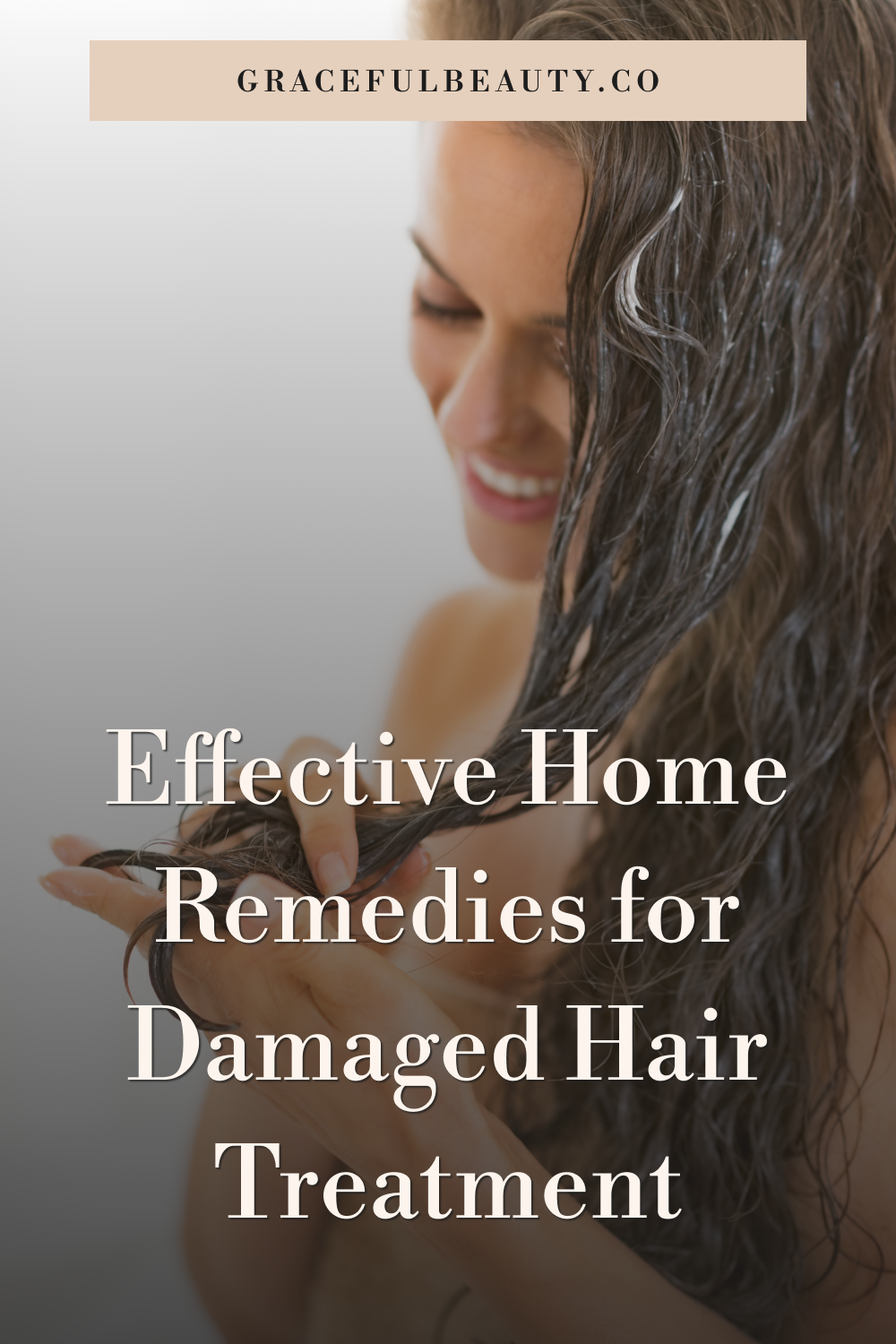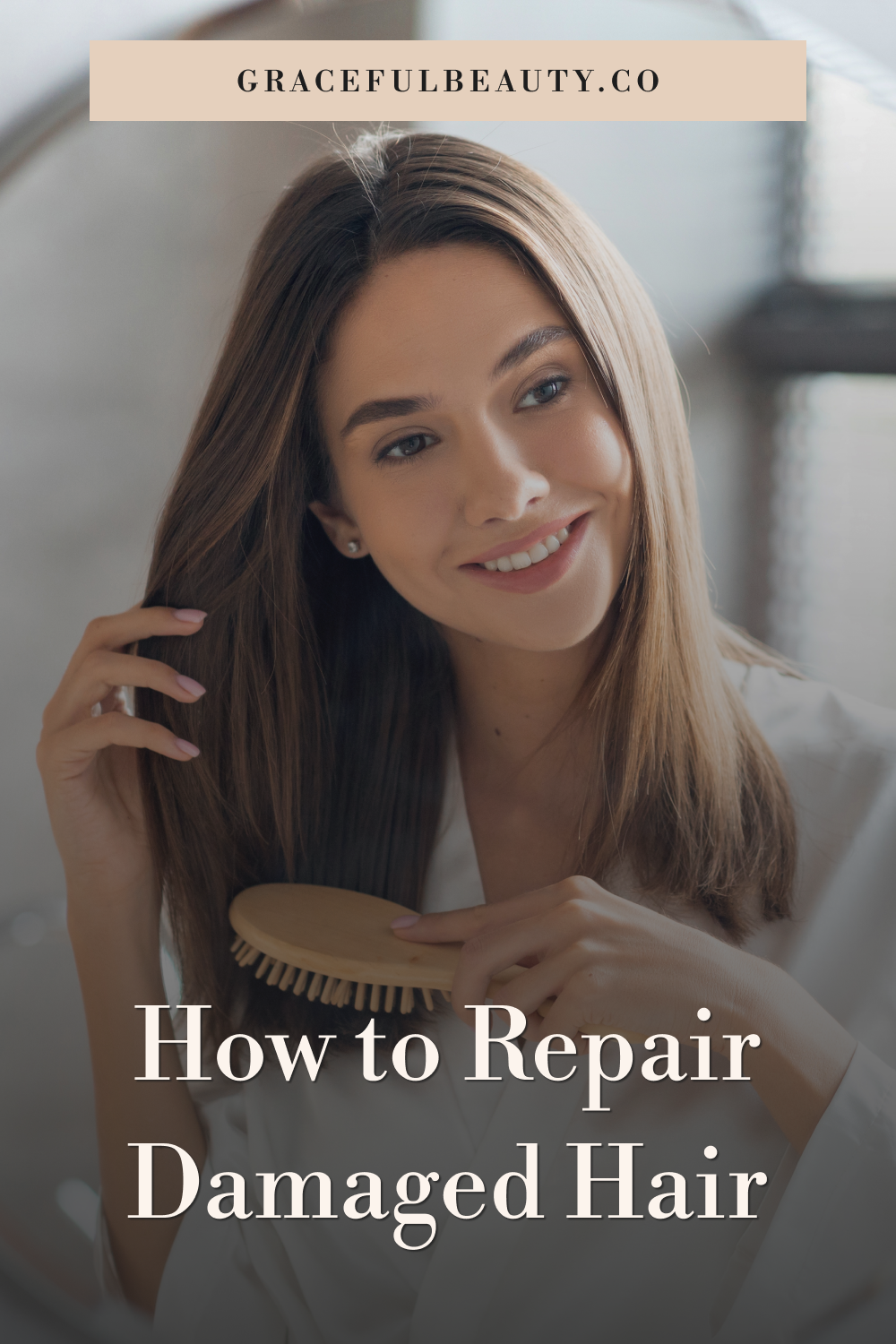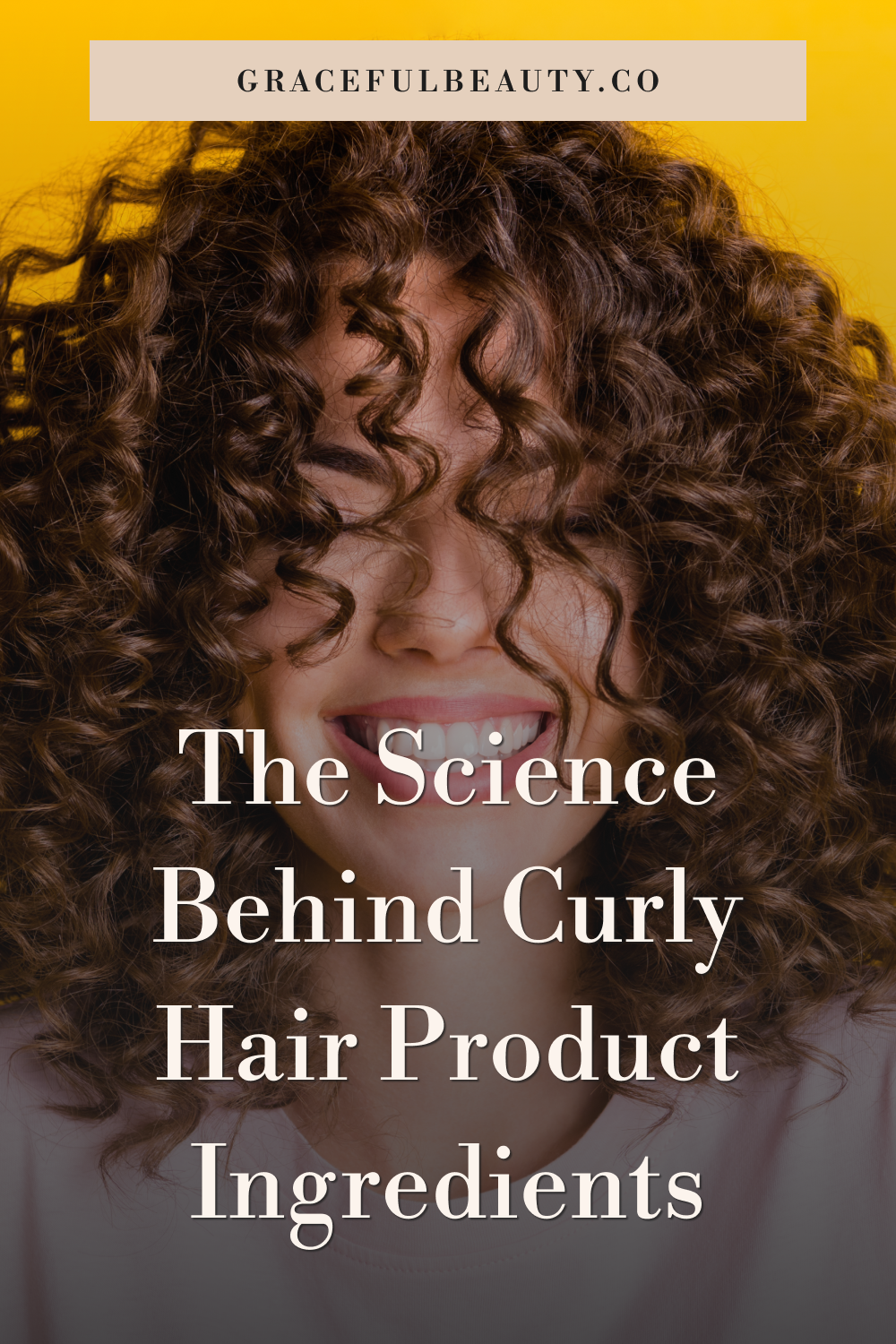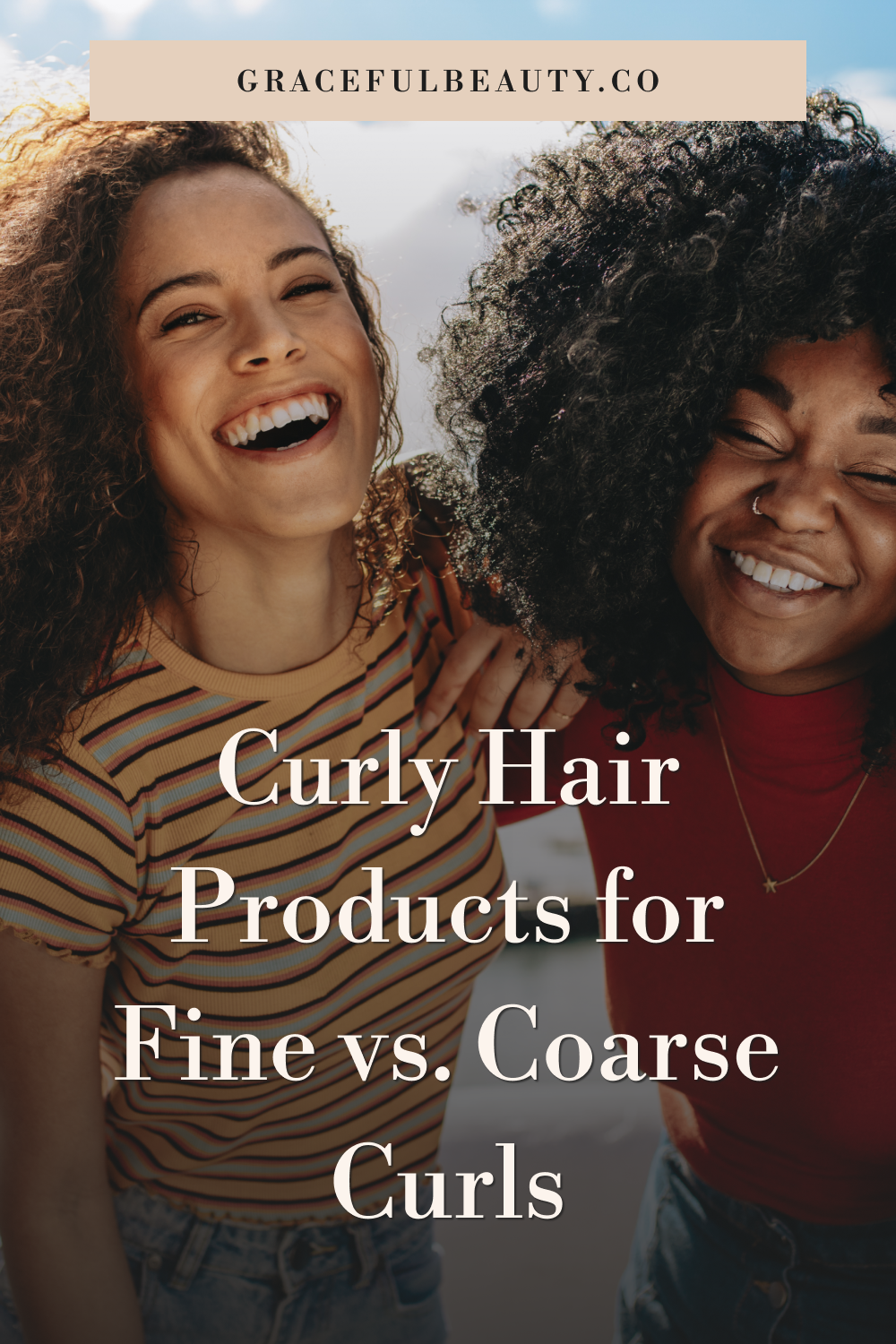
In this article, you will learn effective home remedies for damaged hair treatment.
Is your hair feeling dry, brittle, and damaged? Don’t worry, we’ve got you covered. In this blog post, we’ll explore some effective home remedies for treating damaged hair. From nourishing masks to natural oils, these remedies will help restore your hair’s shine and vitality. Say goodbye to lifeless locks and hello to healthy, luscious hair!
Understanding Hair Damage
Hair damage can manifest in various forms, each requiring a tailored approach to restoration. Understanding the types of damage and their common causes is essential for effective treatment and prevention.
Types of Hair Damage
- Dryness: This occurs when the hair lacks moisture, leading to brittleness, frizz, and breakage. Factors like excessive heat styling, over-washing, and harsh chemical treatments can contribute to dryness.
- Breakage: Weak, brittle hair prone to breakage is often the result of excessive heat, over-manipulation, or harsh brushing and styling techniques.
- Split Ends: Caused by damage to the hair’s protective outer layer, split ends are a common issue, often aggravated by heat styling, chemical treatments, and mechanical stress.
- Thinning: Hair thinning can be caused by various factors, including genetics, hormonal changes, stress, and poor nutrition, leading to reduced hair density and volume.
Common Causes of Damaged Hair
- Overstyling: Excessive use of heated styling tools, such as flat irons and curling wands, can strip the hair of its natural moisture and weaken the strands.
- Chemical Treatments: Perms, relaxers, and color treatments contain harsh chemicals that can compromise the hair’s integrity and lead to damage over time.
- Poor Hair Care Practices: Over-washing, using harsh shampoos, and neglecting conditioning can contribute to dryness and breakage.
- Environmental Factors: Exposure to sun, wind, and pollutants can damage the hair cuticle, leading to dryness and brittleness.
- Nutritional Deficiencies: Inadequate intake of essential nutrients, such as protein, vitamins, and minerals, can impact hair health, leading to dullness and breakage.
By recognizing the various types of damage and their root causes, individuals can adopt targeted strategies to restore and maintain healthy, lustrous hair.
Natural Oils for Hair Repair
When it comes to nurturing damaged hair back to its healthy state, natural oils serve as a stellar solution, providing essential nutrients and moisture. Let’s delve into the remarkable properties of coconut oil, argan oil, and olive oil for effective hair repair.
Coconut Oil
Coconut oil is celebrated for its deep conditioning and moisturizing capabilities, making it an ideal remedy for dry and damaged hair. Packed with fatty acids, it penetrates the hair shaft, reducing protein loss and bolstering the overall strength and vitality of your strands. A weekly coconut oil treatment can work wonders, leaving your hair lustrous and rejuvenated.
Argan Oil
Hailing from the kernels of the argan tree, argan oil is a prized elixir for repairing and nourishing damaged hair. Rich in antioxidants and vitamins E and F, it imparts a luxurious shine while taming frizz and split ends. This liquid gold is a versatile multitasker, serving as a protective barrier against heat styling and environmental stressors.
Olive Oil
Renowned for its emollient properties, olive oil has been a go-to natural remedy for centuries. It deeply conditions the hair, smoothing rough cuticles and infusing moisture to combat brittleness. The abundance of vitamins E and K in olive oil promotes scalp health, fostering an optimal environment for hair growth and restoration.
Embrace the rejuvenating power of these natural oils, and let your hair flourish with vitality and resilience.
To explore further insights into the benefits of natural oils for hair repair, head over to Viori’s 5 Benefits of Natural Hair Oils.
DIY Hair Mask Recipes
Avocado and Honey Mask for Moisture
Dry and damaged hair can greatly benefit from an avocado and honey mask. Avocado is rich in fatty acids, which help to moisturize and nourish the hair, while honey is a natural humectant, which means it helps attract and lock in moisture. To create this mask, mash half of a ripe avocado and mix it with two tablespoons of honey. Apply the mixture to your hair, ensuring that it is evenly distributed. Leave it on for about 20-30 minutes before rinsing it out with lukewarm water. This mask can be used once a week to maintain moisture and shine in your hair.
Banana and Almond Oil for Split Ends
Bananas are excellent for softening and protecting the hair while almond oil is rich in vitamins and minerals that promote hair health. To make this mask, blend a ripe banana with a tablespoon of almond oil until it forms a smooth paste. Apply the mixture to your hair, focusing on the ends where the split ends are most prominent. Leave the mask on for 15-20 minutes before rinsing it off with a gentle shampoo. Regular use of this mask can help minimize and prevent split ends, leaving your hair looking and feeling healthier.
Egg and Mayonnaise Protein Treatment
For a protein-packed treatment to strengthen and repair damaged hair, combining eggs and mayonnaise can work wonders. Eggs are rich in protein and essential nutrients that help fortify the hair shaft, while mayonnaise contains oils and amino acids that aid in moisturizing and adding shine to the hair. To prepare this mask, whisk an egg and mix it with two tablespoons of mayonnaise until you have a smooth mixture. Apply the mask to your hair and scalp, ensuring all strands are coated. Leave it on for 30 minutes before rinsing it out with cool water and shampooing as usual. Incorporating this treatment into your hair care routine can help restore strength and vitality to your hair.
Herbal Remedies for Stronger Hair
Aloe Vera for Scalp Health
Aloe vera is widely known for its soothing properties, and it’s no different when it comes to scalp health. This natural plant extract contains proteolytic enzymes that repair dead skin cells on the scalp. It also acts as a great conditioner, leaving your hair smooth and shiny. To use aloe vera for healthier hair, simply apply the gel directly to your scalp and leave it on for about an hour before rinsing it off.
Green Tea Rinse to Reduce Breakage
Green tea is not only a refreshing beverage, but it’s also beneficial for reducing hair breakage. Rich in antioxidants, green tea can stimulate hair growth and strengthen the hair follicles. To create a green tea rinse, brew a cup of green tea, allow it to cool, and then pour it over your hair after shampooing. Massage it into your scalp and leave it on for 10-15 minutes before rinsing.
Hibiscus and Yogurt for Hair Growth
Hibiscus is a flower that has been traditionally used for hair growth. It contains vitamins and antioxidants that nourish the scalp, strengthen the roots, and promote hair growth. When combined with yogurt, which is rich in protein, the blend becomes a potent treatment for enhancing hair thickness and volume. Create a hair mask by blending hibiscus petals with yogurt to form a smooth paste. Apply it to your hair and leave it on for 30 minutes before rinsing it out.
The Role of Diet in Hair Health
Best Foods for Healthy Hair
A balanced diet plays a crucial role in maintaining hair health. Incorporating protein-rich foods such as eggs, fish, and lean meats can promote hair strength and growth. Additionally, including leafy greens, nuts, seeds, and fruits rich in antioxidants can contribute to scalp health and overall hair vitality. Consuming foods high in omega-3 fatty acids, like salmon and flaxseeds, can help nourish the hair follicles, resulting in improved hair texture and shine.
Vitamins and Minerals Essential for Hair Repair
Vitamins and minerals are essential for promoting hair repair and growth. Vitamin A aids in the production of sebum, helping keep the scalp moisturized. Sources of vitamin A include sweet potatoes, carrots, and spinach. Biotin, found in nuts, seeds, and sweet potatoes, supports the production of keratin, a protein vital for healthy hair. Adequate intake of vitamin C, found in citrus fruits, strawberries, and bell peppers, assists in collagen production, essential for strong and resilient hair. Additionally, iron-rich foods like lentils, spinach, and red meat aid in carrying oxygen to the hair follicles, promoting hair growth and vitality.
For more in-depth information on the role of diet in promoting hair health, visit WebMD’s Diet for Health Hair.
Daily Hair Care Tips
Maintaining a consistent and effective daily hair care routine is essential for restoring damaged hair and preventing further harm. By incorporating gentle brushing techniques, heat styling do’s and don’ts, and tips for drying your hair without damage, you can promote healthier, more resilient hair.
Gentle Brushing Techniques
When detangling or styling your hair, opt for a wide-toothed comb or a brush with soft bristles to minimize breakage and minimize stress on the hair shaft. Begin detangling from the ends and gradually work your way up to the roots, gently removing knots and tangles without causing unnecessary strain on the hair.
Heat Styling Do’s and Don’ts
To minimize heat damage, it’s essential to use heat styling tools sparingly and at the lowest effective temperature. Apply a heat protectant product before using any heat styling tools to create a barrier between the high temperatures and your hair, reducing the risk of heat-induced damage. Additionally, consider embracing heatless styling techniques, such as braiding or air-drying, to minimize reliance on hot tools.
Tips for Drying Your Hair Without Damage
After washing your hair, gently pat it with a microfiber towel to remove excess water without causing friction or breakage. Avoid vigorously rubbing your hair with a towel, as this can lead to damage and frizz. If using a blow dryer, set it to a low or medium heat setting and maintain a safe distance from your hair to prevent overheating and minimize the risk of heat damage.
By implementing these daily hair care tips, you can actively contribute to the restoration and maintenance of your hair’s health, minimizing the impact of damage and promoting long-term vitality.
When to Seek Professional Help
If your hair has been showing signs of severe damage despite your best efforts, it may be time to seek professional help. Here are some indicators that your hair needs the expertise of a professional stylist:
Signs Your Hair Needs a Professional
- Excessive Breakage: If you notice an unusual amount of hair breakage, especially when brushing or styling, it’s a clear sign that your hair needs professional attention.
- Unmanageable Split Ends: While regular trims can help control split ends, unmanageable split ends that reappear quickly may indicate the need for professional intervention.
- Noticeable Hair Loss: If you’re experiencing significant hair loss or thinning, it’s essential to consult a professional to address the underlying causes.
Salon Treatments for Damaged Hair
Professional stylists can offer a range of effective treatments for damaged hair, including:
- Deep Conditioning Treatments: Professional deep conditioning treatments can penetrate the hair shaft, providing intense hydration and repair.
- Keratin Treatments: These treatments can help restore strength and smoothness to damaged hair, reducing frizz and improving manageability.
- Scalp Treatments: Professional scalp treatments can address issues such as dandruff, dryness, or excess oil, promoting a healthier environment for hair growth.
Remember, professional stylists have the knowledge and tools to assess and address your specific hair concerns effectively. Consulting a professional can make a significant difference in reviving and maintaining the health of your damaged hair.
Final Thoughts
Damaged hair can be a major style setback, but with the right home remedies, you can restore its luster and strength. Incorporating natural ingredients like coconut oil, avocado, and honey into your hair care routine can help nourish and repair damaged strands. Additionally, minimizing heat styling and using a wide-tooth comb can prevent further damage. By making these simple changes, you can revitalize your hair and achieve the sleek and glossy look you desire. Say hello to healthy, beautiful hair with these effective home remedies.








